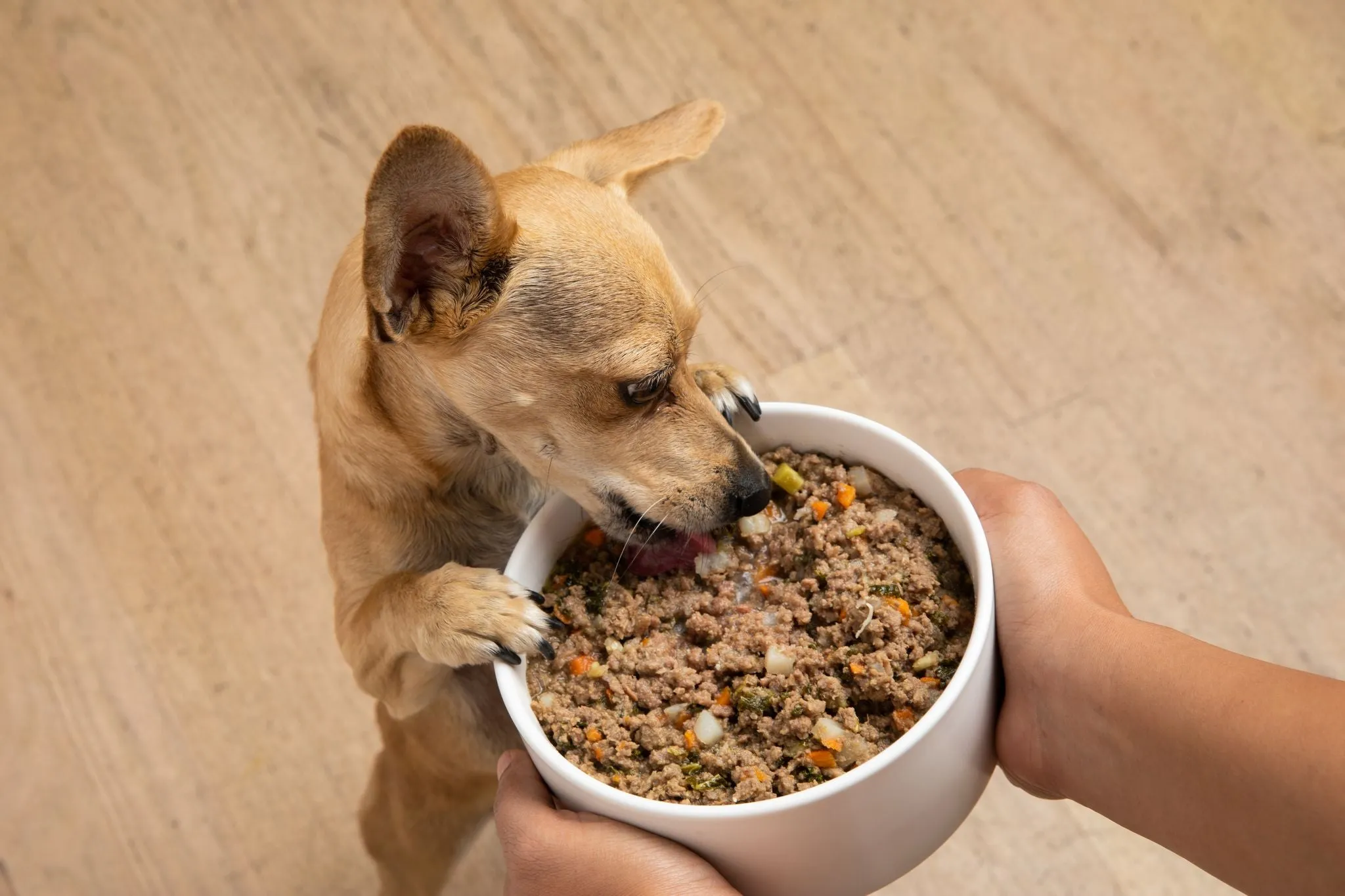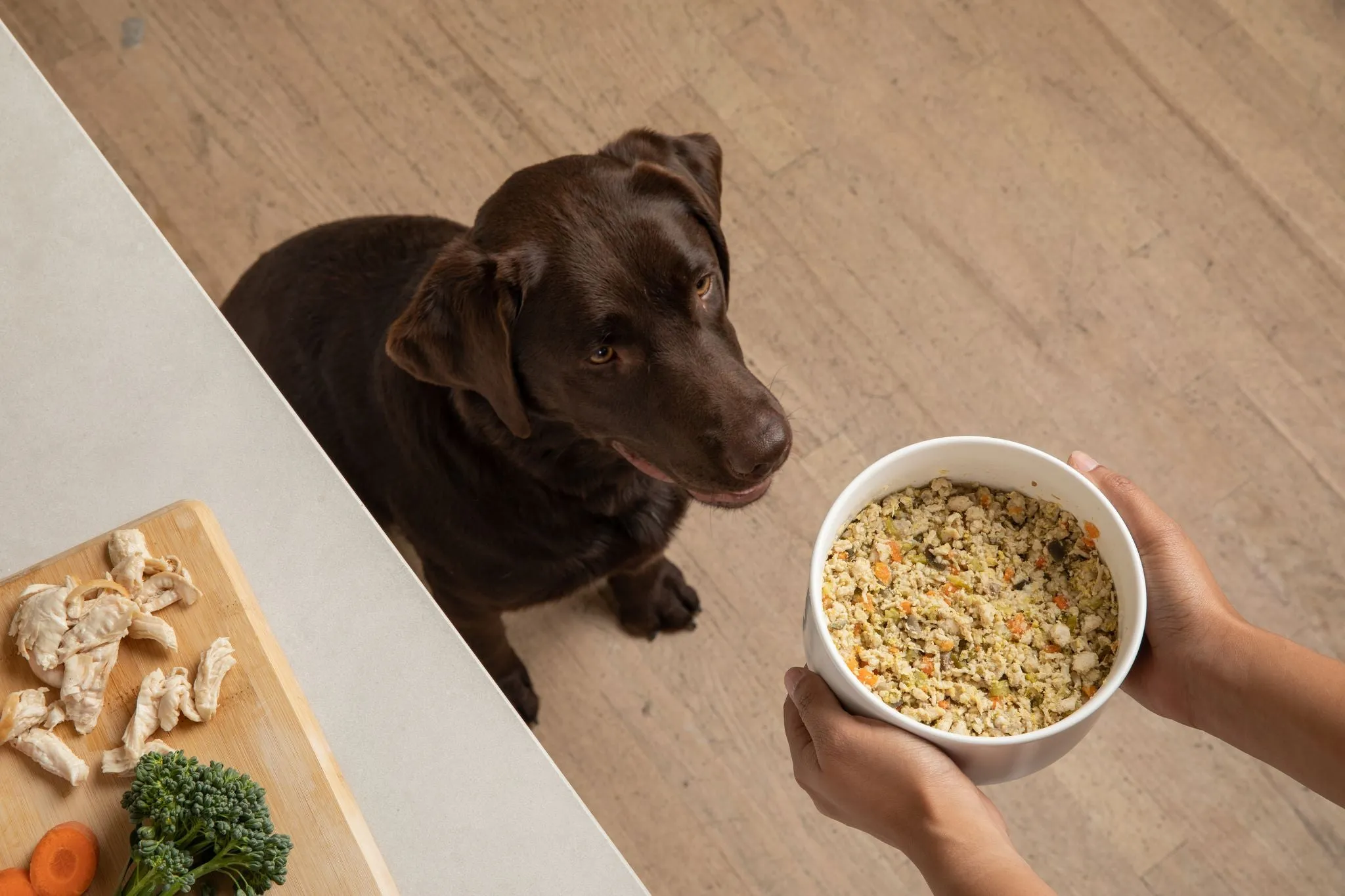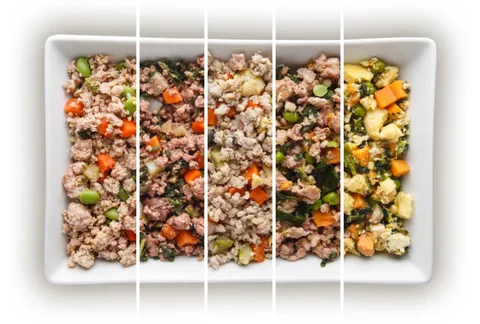If your beloved canine companion has been diagnosed with kidney disease, it’s natural to feel a wave of worry and confusion. This condition can be a challenging journey for both pets and their owners, often presenting subtly and requiring careful management. As dedicated pet parents, you’d do anything to restore their joyful spirit and wagging tail. You’ve likely heard about the critical role of diet in managing this illness and might be exploring Homemade Recipes For Dogs With Kidney Disease as a potential solution.
You’ve come to the right place. This guide from Dog Care Story, your trusted resource for pet health, will delve into the profound impact of diet on canine kidney disease and provide insights into preparing vet-approved homemade kidney diets for dogs. We aim to equip you with the knowledge to make informed decisions for your furry friend’s well-being.
Beyond exploring the intricacies of home-prepared meals, we’ll also introduce a simpler yet equally effective way to support your pet’s kidney health with a premium, vet-formulated diet. Our goal is to empower you with the best options for your dog. Before we uncover the best dog food recipes for kidney disease, let’s understand the condition itself and the intricate link between diet and kidney disease in dogs.
Understanding Kidney Disease in Dogs
Kidney disease is a profound health challenge that can dramatically alter your dog’s quality of life. A deeper understanding of this condition is the first step toward effective management. Your dog’s kidneys are vital organs, working tirelessly to filter waste products from the blood, regulate blood pressure, and contribute to the production of essential hormones and red blood cells. When kidney disease strikes, this intricate system falters, leading to a cascade of health issues. Let’s differentiate between the two primary types of kidney disease in canines.
 A sad-looking dog with an owner comforting them, representing the concern over kidney disease
A sad-looking dog with an owner comforting them, representing the concern over kidney disease
Acute vs. Chronic Kidney Disease: Distinguishing the Forms
Kidney disease manifests in two main forms, each with distinct characteristics and prognoses:
- Acute Kidney Disease (AKD): This form of kidney failure occurs suddenly and severely. Common triggers include the ingestion of toxic substances like antifreeze, certain medications, or poisonous plants. AKD demands immediate veterinary intervention, and if treated promptly and aggressively, the outlook can often be favorable for recovery.
- Chronic Kidney Disease (CKD): More insidious in its progression, CKD develops gradually over an extended period. It is frequently associated with aging or can be a complication of long-term, untreated illnesses. CKD is generally not reversible, meaning the damage to the kidneys is permanent. However, with appropriate ongoing care and significant lifestyle adjustments, including dietary changes, its progression can often be managed effectively, maintaining a good quality of life for your pet.
Common Symptoms and Early Warning Signs
While kidney disease can sometimes progress silently, there are crucial signs that astute pet owners can watch for. Early detection is paramount for successful management and can significantly impact your dog’s long-term health. Be vigilant for the following common symptoms:
- Increased thirst (polydipsia) and more frequent or increased urination (polyuria)
- Lethargy, unusual weakness, or depression
- A noticeable loss of appetite (anorexia)
- Unexplained weight loss
- Bad breath with a distinctive chemical or ammonia-like odor
- Episodes of vomiting and/or diarrhea
- Presence of blood in the urine
It’s important to remember that these symptoms are not exclusive to kidney disease and could indicate other underlying health issues. Therefore, if you observe any of these signs, prompt consultation with a veterinarian for an accurate diagnosis is critical.
Diagnosis and Testing Procedures
If you suspect your dog may be suffering from kidney disease, seeking immediate veterinary attention is essential for a comprehensive evaluation. The diagnostic process typically involves a series of tests designed to assess kidney function and overall health:
- Blood Tests: A Comprehensive Metabolic Panel is a key diagnostic tool. It provides vital information about kidney function, specifically measuring levels of creatinine and blood urea nitrogen (BUN). Elevated levels of these waste products in the blood often indicate impaired kidney function.
- Urine Tests: A urinalysis is performed to evaluate the urine’s concentration, detect the presence of protein, glucose, or blood, and identify any signs of infection. This test helps determine how effectively the kidneys are filtering waste and reabsorbing essential nutrients.
- Ultrasound or X-ray: Imaging tests, such as an abdominal ultrasound or X-ray, allow veterinarians to visualize the kidneys, assess their size and shape, and identify any structural abnormalities, cysts, stones, or blockages that could be contributing to kidney disease.
Based on the diagnostic findings, your veterinarian will formulate a tailored treatment plan. This plan might involve implementing specific dietary changes, which could include preparing your own meals using homemade recipes for dogs with kidney disease or opting for a specially formulated commercial kidney diet. But why is this so critical? What happens if kidney disease is left untreated?
Untreated kidney disease can lead to irreversible damage to these vital organs and a severe decline in your dog’s overall quality of life. In advanced stages, it can unfortunately be fatal. Dogs suffering from untreated kidney disease often experience chronic fatigue, a profound loss of interest in activities they once enjoyed, and may endure debilitating symptoms such as persistent nausea, anemia, and electrolyte imbalances. In essence, your dog’s happiness, comfort, and longevity are significantly jeopardized if kidney disease is left unaddressed. This underscores the crucial role of diet for dogs with kidney disease.
The Role of Diet for Dogs With Kidney Disease
A thoughtfully designed diet is not merely a supportive measure; it can be a cornerstone in the management of canine kidney disease. Such a diet can actively help slow the progression of the illness and dramatically improve your dog’s quality of life by alleviating uncomfortable symptoms. In fact, for dogs with kidney disease, diet plays such a pivotal role that many veterinary experts consider it a form of ‘nutritional medication.’
 A dog happily eating from a bowl, highlighting the importance of diet for kidney health
A dog happily eating from a bowl, highlighting the importance of diet for kidney health
The Science Behind Nutritional Needs in Kidney Disease
When your dog’s kidneys are not functioning optimally, their ability to effectively filter waste products from the blood is compromised. This is precisely where dietary intervention becomes vital. A properly designed meal plan for a dog with kidney disease focuses on reducing the workload on these already impaired organs, thereby decreasing the volume of metabolic wastes they are forced to filter. By easing this burden, the kidneys can function more efficiently, helping to preserve their remaining function for as long as possible.
Importance of Protein, Fat, and Mineral Balances
Achieving the correct balance of macronutrients and minerals is critical in a kidney-supportive diet:
- Protein: Contrary to a common misconception, protein isn’t the enemy in kidney disease; it’s about the quality and controlled quantity. High-quality protein sources, such as lean meats, are easier for compromised kidneys to process, generating fewer harmful waste products like urea. The goal is to provide enough protein to maintain muscle mass without overtaxing the kidneys.
- Fat: Omega-3 fatty acids, abundantly found in fish oils and flaxseeds, have demonstrated significant promise in reducing kidney inflammation and oxidative stress. Incorporating these beneficial fats into the diet may help to slow the disease’s progression and support overall kidney health.
- Minerals: A careful balance of minerals is essential. Specifically, too much phosphorus can be highly detrimental, worsening kidney disease and leading to secondary complications. Controlled levels of calcium, potassium, and sodium are also crucial for maintaining various vital bodily functions and preventing electrolyte imbalances.
The Hydration Side of Things
Proper hydration is an absolute non-negotiable aspect of managing kidney disease. The kidneys rely heavily on an adequate and consistent intake of water to effectively flush out toxins and waste products from the body. Many dogs with kidney issues tend to lose water more rapidly than healthy dogs, as their bodies work harder to excrete excess waste through increased urine production.
This is where a diet with a naturally high moisture content can be incredibly beneficial. Wet or moist foods significantly aid in maintaining hydration, thereby easing the burden on compromised kidneys and assisting in the removal of waste.
Vet-Approved Homemade Dog Food Recipes for Kidney Disease: Example Diets and Considerations
You might be thinking that taking complete control of your dog’s diet means committing to a purely homemade regimen, especially when confronting a serious condition like kidney disease. However, it’s important to realize that feeding homemade food for dogs with kidney disease is far from simple and comes with its own set of complexities. While the primary benefit is knowing exactly what goes into your dog’s bowl, have you fully considered the potential downsides and challenges? Let’s explore some example diets, key considerations, and why this route may not always be as straightforward or beneficial as it initially appears.
The Benefits of Feeding Homemade Food for Dogs With Kidney Disease
Crafting your pet’s meals from scratch offers a high degree of control over the ingredients. This allows you to meticulously monitor and adjust protein levels, manage phosphorus and sodium content, and ensure other essential nutritional considerations are met for a kidney-friendly diet. Furthermore, feeding your dog homemade meals means you can actively avoid the artificial additives, preservatives, and questionable fillers often found in many commercial dog foods. This level of oversight can indeed provide a certain peace of mind, knowing you are directly influencing your dog’s nutritional intake. For those seeking even more tailored options, exploring resources like homemade grain free dog food recipes vet approved can offer additional dietary insights.
To illustrate, we’ve outlined three example vet-approved homemade recipes for dogs with kidney disease below.
Example Diet 1: Chicken and Rice
This recipe is relatively simple, but achieving the precise balance of nutrients for a dog with kidney disease is crucial. Lean chicken provides a good protein source, but strict moderation is vital as excessive protein can further strain compromised kidneys.
Ingredients:
- 2 cups boiled chicken (boneless, skinless, low sodium)
- 1 cup cooked white rice
- 1/4 cup carrots (steamed and finely chopped)
Preparation:
Boil the chicken thoroughly in plain water without adding any salt or seasonings. Cook the white rice according to package directions. Steam the carrots until tender. Once all ingredients are cooked and cooled, mix them thoroughly. Serve this mixture cool, ensuring portion sizes are appropriate for your dog’s weight and condition, as advised by your vet.
Example Diet 2: Beef and Veggies
Lean ground beef offers an alternative protein source, but, as with chicken, moderation remains key. The selected vegetables are naturally low in phosphorus, which is beneficial, but the overall nutrient profile still requires careful monitoring to ensure proper balance.
Ingredients:
- 1 cup ground beef (extra lean)
- 1/2 cup zucchini (steamed and chopped)
- 1/2 cup yellow squash (steamed and chopped)
Preparation:
Cook the ground beef in a non-stick pan until it’s thoroughly browned, then drain off any excess fat. Separately, steam the zucchini and yellow squash until soft. Once cooled, combine the cooked beef with the steamed vegetables. This recipe provides a different flavor profile while adhering to kidney-friendly principles. For more general healthy meal ideas, you might consider consulting guides on best home cooked meals for dogs.
Example Diet 3: Fish and Sweet Potato
This recipe is notable for its simplicity, featuring just two primary ingredients. Fish is an excellent source of omega-3 fatty acids, which possess anti-inflammatory properties beneficial for kidney health. However, it’s crucial to select the right type of fish, as some varieties can be quite high in phosphorus, which could be detrimental for a dog with kidney disease.
Ingredients:
- 1 cup salmon or cod (cooked, skinless, boneless)
- 1 cup sweet potato (boiled and mashed)
Preparation:
Cook the chosen fish (salmon or cod) thoroughly, ensuring it’s completely boneless and skinless. Boil the sweet potato until it is very soft, then mash it into a smooth consistency. Combine the cooked fish with the mashed sweet potato. This creates a complete meal that is both palatable and provides beneficial fats, but always cross-reference phosphorus content with your vet. If your dog is a large breed, you might also be interested in homemade dog food recipes vet approved for large dogs.
Why Creating and Feeding Vet-Approved Homemade Dog Food Recipes for Kidney Disease May Not Be Right For You
We understand that you initially sought information on homemade recipes for dogs with kidney disease. However, we want to present a balanced perspective, as there may be a more practical and equally effective way to support your pet’s health. While the appeal of complete control and peace of mind from preparing homemade food is undeniable, here are several compelling reasons why investing in a professionally formulated kidney diet might be a better choice for your pet’s health and happiness:
- Time-Consuming Commitment: Preparing balanced, fresh meals from scratch daily or even weekly represents a substantial time commitment. This includes sourcing specific ingredients, cooking, and carefully measuring everything.
- Challenges of Nutritional Balance: Achieving and consistently maintaining the precise nutritional balance required for a dog with kidney disease is both an art and a science. It often necessitates regular consultations with a veterinary nutritionist, potentially involving costly modifications and ongoing adjustments to the recipes to ensure all essential nutrients are present in the correct, kidney-friendly ratios.
- Cost Implications: High-quality, human-grade ingredients suitable for a therapeutic diet can often be more expensive than purchasing a premium, specially formulated commercial kidney dog food, especially when considering the required supplements to ensure completeness.
- Consistency is Key: Dogs with kidney disease require a highly consistent diet to manage their condition effectively. It is surprisingly easy to deviate from exact nutrient profiles when preparing food at home, even with the best intentions, which can inadvertently impact your dog’s health.
Given these challenges, why not alleviate the stress and save valuable time by providing your pet with an expertly crafted kidney diet from Chi Dog, designed specifically for dogs with kidney disease?
Save Yourself Time and Trouble By Giving Your Pet the Best Diet for Dogs With Kidney Disease at Chi Dog!
You’ve now considered the complexities, time investment, and potential concerns associated with preparing homemade dog food for kidney disease. You’ve likely pondered over precise protein percentages, weighed the costs of lean meats and fresh vegetables, and perhaps felt a touch of anxiety about ensuring everything is just right.
We understand these concerns deeply. Crafting a perfectly tailored, nutritionally balanced diet for a pet battling kidney issues is no small undertaking, and even a minor oversight can inadvertently exacerbate your pet’s condition. This is precisely why Chi Dog’s Water Diet can be a profound game-changer for both you and your cherished four-legged companion.
 Chi Dog Water Diet product packaging, showcasing a healthy, holistic approach
Chi Dog Water Diet product packaging, showcasing a healthy, holistic approach
Why Chi Dog’s Water Diet Is the Best Choice For Your Pet
The Chi Dog Water Diet isn’t just another commercial dog food; it represents a holistic, therapeutic diet meticulously formulated with a foundation in both modern nutritional science and the ancient wisdom of Traditional Chinese Veterinary Medicine (TCVM).
Like all our holistic dog food offerings, the Water Diet is expertly crafted to provide support for a diverse range of conditions, including food allergies, digestive issues like diarrhea, and, most importantly, specific kidney support. Its unique nutritional profile truly sets it apart:
- Crude Protein (min): 17%: This carefully controlled level provides sufficient high-quality protein to maintain essential muscle mass without placing undue strain on the kidneys.
- Crude Fat (min): 12%: This offers adequate caloric intake to meet energy needs without the risks often associated with overly high-fat content in kidney diets.
- Low Carbohydrate: 9%: A reduced carbohydrate load helps to lessen the metabolic burden on your dog’s already stressed kidneys.
Furthermore, the ingredients are thoughtfully selected. Featuring a blend of pork (an excellent novel protein source), pearled barley, green peas, watercress, and sweet potato, each meal is a rich source of beneficial nutrients. These hypoallergenic ingredients make it particularly advantageous for dogs with sensitivities or picky eating habits. It’s more than just food; it’s comprehensive nourishment designed to bolster your pet’s kidney health while concurrently addressing other common concerns such as back pain, ear infections, and urinary incontinence. For delicious, kidney-friendly snacks, you might also explore homemade treats for dogs with kidney disease.
From a Traditional Chinese Medicine perspective, the Water Diet is characterized as Neutral to Cooling and is formulated to address both Kidney Yin and Qi Deficiencies. This holistic approach translates into a balanced, deeply nourishing meal that supports your pet’s overall wellness, placing a strong emphasis on the kidneys’ vital functions and energetic balance.
All our meals are meticulously prepared in a USDA-certified organic kitchen and adhere strictly to AAFCO (Association of American Feed Control Officials) nutritional guidelines. This ensures you can have complete peace of mind, knowing you are providing your pet with the highest standard of dog food for kidney disease.
We also make the ordering and delivery process remarkably simple, ensuring your pet’s specially formulated meals arrive at your door on a routine basis. This particular diet is also recognized as the best diet for dogs with liver disease and the best dog IBD diet. We offer diets tailored for various other conditions as well, from the best diet for overweight dogs to the best dog food for anxiety. For now, let’s discuss how to seamlessly transition your dog to our kidney-supportive diet.
How to Transition Your Dog to Our Food for Dogs with Kidney Disease
Transitioning your dog from their current diet (whether homemade or another commercial brand) to Chi Dog’s Water Diet should be a gradual and gentle process. Typically, we recommend a week-long transition period. This staggered introduction helps prevent potential digestive upsets and allows your dog’s system to comfortably adapt to the new nutrient balance, unique taste, and specific texture of our food. Start by mixing a small amount of the Water Diet with their old food, gradually increasing the proportion of Chi Dog food over several days until they are fully transitioned.
More Ways to Provide Support Beyond Feeding the Best Diet for Dogs With Kidney Disease
While a nutritionally optimized diet like Chi Dog’s Water Diet forms a critical cornerstone in managing canine kidney disease, comprehensive care extends beyond just food. A multi-faceted approach involving several layers of attention and proactive measures will significantly enhance your dog’s comfort and health. Here are additional ways you can provide essential support for your dog:
 A person giving a dog medicine, representing comprehensive care for a pet with kidney disease
A person giving a dog medicine, representing comprehensive care for a pet with kidney disease
- Regular Veterinary Visits: Ongoing and consistent veterinary care is absolutely essential. Regular check-ups, blood tests (to monitor creatinine, BUN, and other kidney markers), and urinalysis can provide crucial information on kidney function, allowing your vet to adjust treatment plans and dietary recommendations as needed.
- Maintain Hydration: Ensure your dog always has constant access to clean, fresh water. Encourage water intake by offering multiple water bowls, flavored water (low-sodium broth), or even a pet fountain. Proper hydration is fundamental for kidney function and plays a key role in flushing out accumulated toxins.
- Limited, Gentle Exercise: Intense or strenuous physical activity can place additional stress on a dog with kidney disease. Opt for shorter, gentler walks and avoid rigorous exercise sessions. The goal is to maintain mobility and mental stimulation without overexerting their system.
- Environmental Comfort: Create a calm, quiet, and comfortable living space for your pet. Stress can negatively impact a dog with kidney disease, so minimizing stressors and providing a safe, predictable environment is beneficial. Ensure they have a soft, warm place to rest.
- Medications and Supplements: Your veterinarian may prescribe specific medications or recommend supplements to support kidney function, manage symptoms (like nausea), address anemia, or correct electrolyte imbalances. Always administer medications exactly as prescribed and consult your vet before introducing any new supplements.
- Alternative Therapies: In some cases, therapies such as acupuncture, herbal remedies (particularly from Traditional Chinese Veterinary Medicine), or even fluid therapy can complement conventional treatments for kidney disease. Always consult your veterinarian before initiating any alternative therapies to ensure they are safe and appropriate for your dog’s specific condition.
- Close Observation: Remain vigilant and closely observe your dog for any changes in behavior or physical symptoms. Watch for signs such as increased lethargy, a further loss of appetite, changes in urination patterns (frequency, volume, color), or any new signs of discomfort. If you notice any concerning changes, contact your veterinarian immediately.
By integrating these additional supportive measures into your pet’s daily routine, you will not only significantly enhance your dog’s comfort and well-being but also considerably improve the chances of slowing the progression of kidney disease.
Closing Thoughts on Vet-Approved Homemade Dog Food Recipes for Kidney Disease
While the concept of preparing vet-approved homemade dog food recipes for kidney disease might initially seem like the ideal solution, it’s crucial to acknowledge the inherent challenges involved. These often include the significant time commitment for daily preparation, the constant struggle to ensure precise nutritional balances, and the ongoing need for veterinary oversight to make necessary adjustments.
In contrast, Chi Dog’s Water Diet offers a scientifically formulated, veterinarian-approved, nutritionally balanced, and highly convenient alternative specifically engineered to support optimal kidney function in dogs. With our Water Diet, you’re not simply providing your pet with a meal; you’re offering a carefully crafted, kidney-supportive therapeutic diet that effectively removes the guesswork and alleviates the daily hassle associated with feeding a dog with kidney disease correctly.
We also offer extensive resources on related topics, such as the best dog diet for skin allergies, the best diet for dogs with pancreatitis, and even comprehensive guidance on the best dog cancer diet.
At this juncture, why continue to spend precious hours in the kitchen meticulously preparing meals when the most effective and convenient nutritional support for your dog’s kidney health is just a click away? Make the smart, compassionate choice for your furry friend—choose Chi Dog’s Water Diet today and provide them with the best possible care.
About the Author
Dr. Susan Bohrer has dedicated 15 years to veterinary practice, specializing in teaching home cooking techniques to pet owners. She holds certifications in Traditional Chinese Veterinary Medicine for Herbal Therapy, Acupuncture, and Food Therapy, bringing a unique blend of conventional and holistic expertise to pet care.
